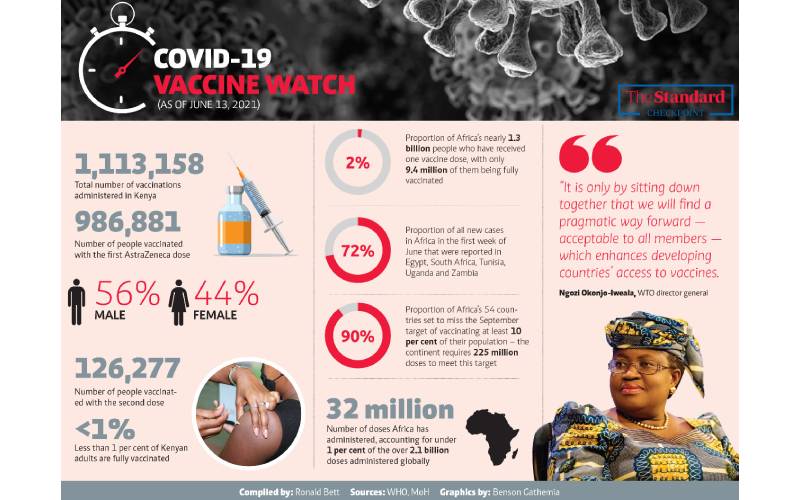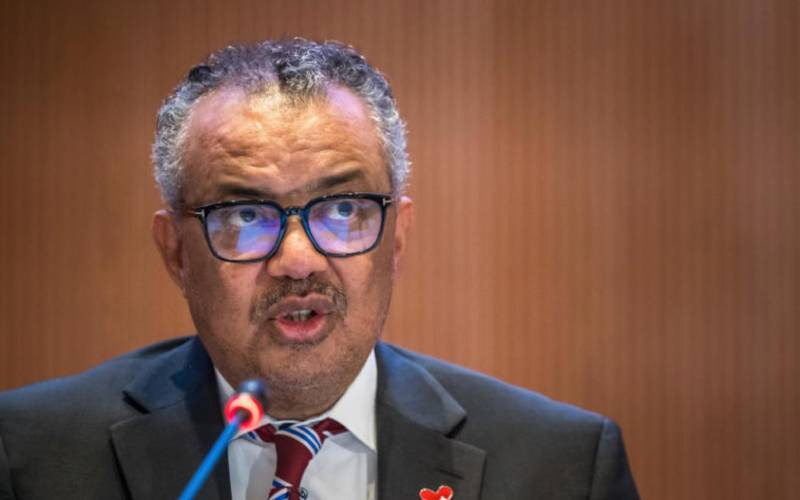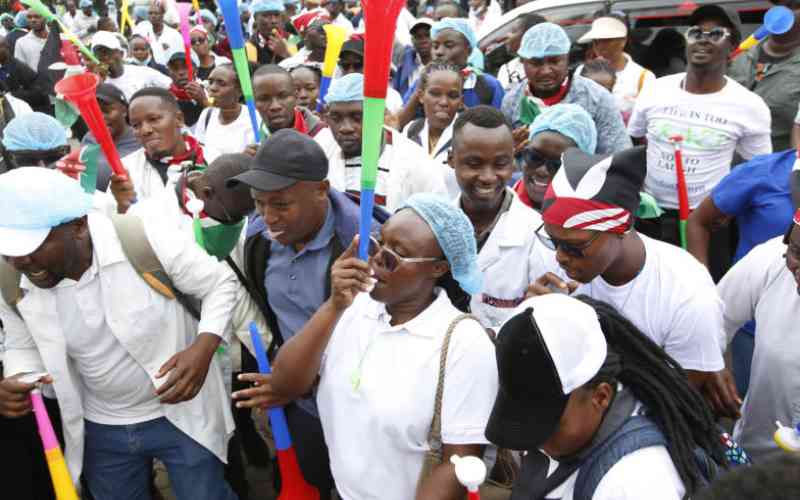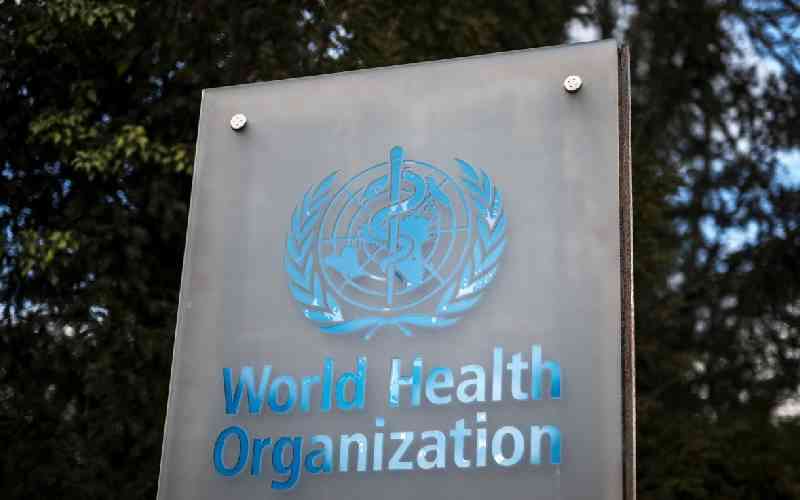As World Trade Organisation (WTO) members look for signs of progress in talks on a proposal by South Africa and India to waive patent rights on Covid-19 vaccines to boost supply to developing countries, the United States has moved to lend its support to the plan.
Those behind the proposal want to ease rules of the WTO’s Trade-Related Aspects of Intellectual Property (TRIPS) agreement.
WTO decisions are based on consensus, so all 164 members need to agree.
Ten meetings in seven months have failed to produce a breakthrough, with 60 proposal sponsors from emerging economies, backed by a chorus of campaign groups, Nobel laureates and former world leaders, pitted against some richer developed countries, where many pharmaceutical companies are based.
The proponents’ argument
The Indian/South African proposal in October says property rights such as patents, industrial designs, copyright and protection of undisclosed information hinder timely access to affordable vaccines and medicines essential to combat Covid-19.
They say the waiver should last for an unspecified time period, with an annual review until it terminates, and call for unhindered global sharing of technology and know-how.
They say there cannot be a repeat of the early years of the HIV/Aids pandemic, when a lack of access to life-saving medicines cost at least 11 million African lives.
The World Health Organisation (WHO) chief Tedros Ghebreyesus and 375 civil society and campaign groups back the proposal, and former leaders from Britain’s Gordon Brown to Mikhail Gorbachev of the Soviet Union had jointly written to US President Joe Biden urging him to support it.

The counter view
Big drug companies oppose patent waivers, as do Britain and Switzerland. The main Western producers are Moderna, Johnson & Johnson, AstraZeneca and jointly Pfizer and BioNTech.
They say vaccine development is unpredictable and costly and that strong IP protection helped provide the incentive for the development of vaccines in record time and will do so again in work on tackling new variants or in a future pandemic.
Proponents counter that some of the money was public funds.
Big Pharma also says vaccine-making is difficult - witness the production problems non-specialist AstraZeneca has faced - so suspending patents alone will not bring more shots.
Complex vaccines require deep cooperation between developers and manufacturers. Any failure to make them properly could undermine public confidence in vaccine safety, they say.
They also point to over 260 partnership agreements already in place for production and distribution and comment that, under the existing TRIPS agreement, governments can allow produces to make a patented product without the consent of the patent owner.
Developing countries have such “compulsory licences” to push down prices for HIV/Aids medication from 2002 to 2007.
The situation, though, is fluid. In Brazil, the only developing country to oppose the waiver, the Senate has passed a bill to suspend Covid-19 vaccine patents. It has become quieter at the WTO since April.
The White House had said it was considering options to maximise global supply of vaccines, including backing the waiver.
Third way
WTO Director General Ngozi Okonjo-Iweala has suggested a “third way” as a compromise, laying out global action to increase vaccine access after a meeting with producers, governments and others.
She urged vaccine makers to increase technology transfers to bring in new manufacturing capacity and to be transparent on contracts and pricing.
US Trade Representative Katherine Tai told the same meeting that extraordinary times required courage and sacrifice from governments and leaders - but also from industry. She said economic recovery depended on addressing global vaccine inequity.
 The Standard Group Plc is a multi-media organization with investments in media
platforms spanning newspaper print
operations, television, radio broadcasting, digital and online services. The
Standard Group is recognized as a
leading multi-media house in Kenya with a key influence in matters of national
and international interest.
The Standard Group Plc is a multi-media organization with investments in media
platforms spanning newspaper print
operations, television, radio broadcasting, digital and online services. The
Standard Group is recognized as a
leading multi-media house in Kenya with a key influence in matters of national
and international interest.











